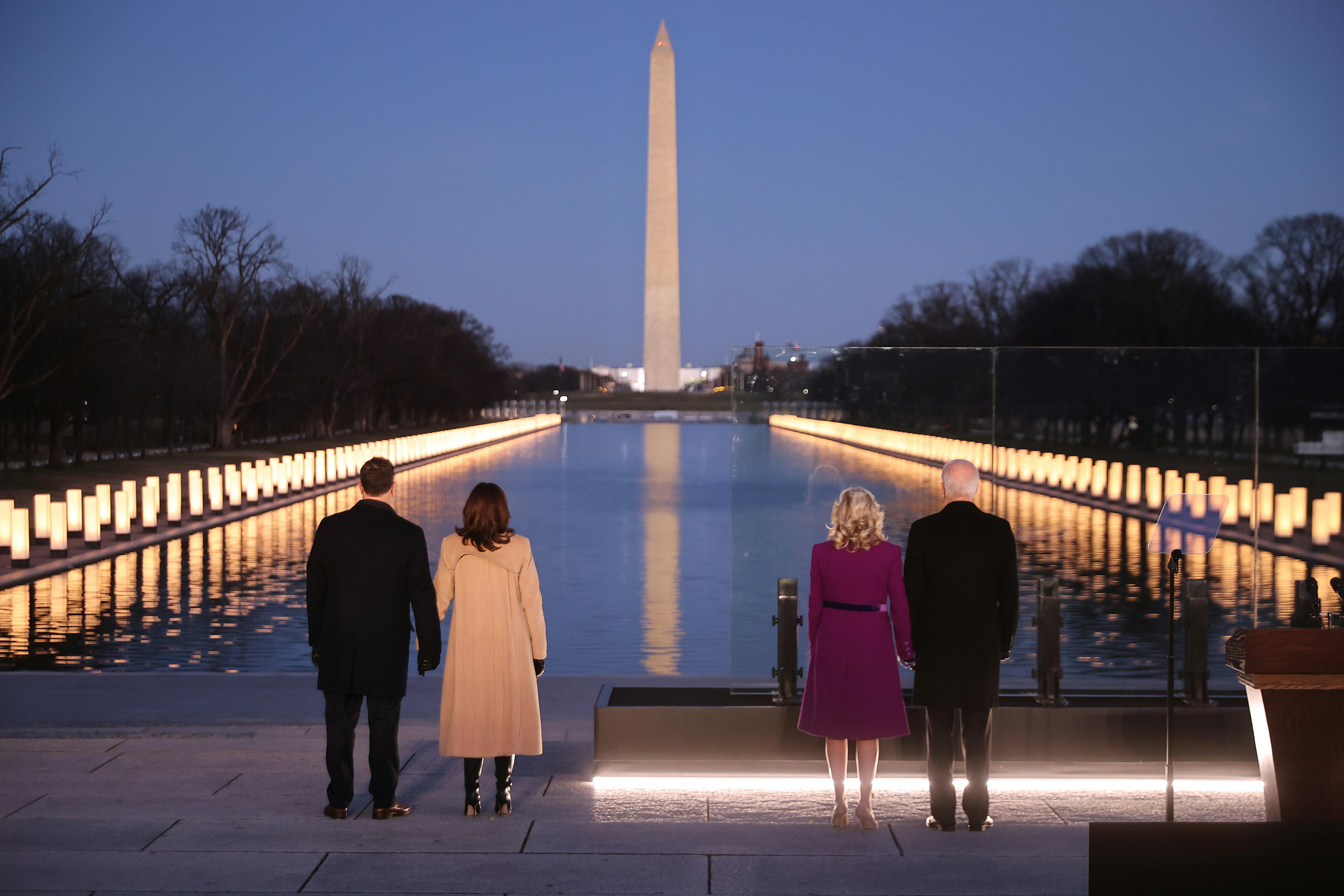|
 Chip Somodevilla/Getty | |||
| Like many, I do dimly remember what it was like to celebrate. There just hasn’t been cause for it in a while. I was thinking about this last night, at the end of the last full day of the Trump presidency. “The traditional luncheon that follows the inaugural ceremony and the inaugural balls have been canceled,” NBC reported Tuesday. “The inaugural committee is holding three ‘virtual’ balls Tuesday night, one of them called ‘We Are One,’ which will feature remarks from Harris.” This is kind of drab stuff, even for the federal government. But I can’t escape the feeling that that’s exactly as it should be—and not just because real balls would be a terrible idea at the height of the pandemic. Inauguration Day 2021 is not really a day of celebration. A day of measured relief, maybe, as Ben Ehrenreich suggested in a piece for TNR last month. But also a day of mourning.
As Donald Trump leaves the White House, it would feel almost obscene not to grieve: for the years lost, for the lives lost, for the families destroyed, for the lines in the sand so many pundits and politicians assured us wouldn’t be crossed, and were. On Tuesday, America’s official death count from the virus—which the outgoing president knowingly downplayed and dismissed, and likely personally spread—reached 400,000. Countless others died alone from other causes, their families unable to say goodbye due to the pandemic. Better public health policies, if Joe Biden implements them, will come too late for these people. A task force to reunite migrant children with their parents can’t erase the fear and trauma of the intervening months and years. And (to come to Apocalypse Soon’s dedicated topic) we can’t get back the time we’ve lost in the fight against climate change, or restore the acres of drilled or logged land, or remove the pollutants released into the atmosphere. We can’t get back the better future we might have had if we’d cut emissions sooner. Sure, too much focus on the negative isn’t psychologically healthy. It also tends to wear readers down a bit. The editorial team at TNR, including Apocalypse Soon, is sensitive to that. We try to celebrate good news, like the report over the weekend that Biden plans to immediately revoke the Keystone XL pipeline’s federal permit. Nick Martin has a piece on that today. And Kate Aronoff’s hard at work right now to give you a climate-related piece on sea shanties, since they’ve become a light in the darkness these days. (Sea shanties are mainly about really bad storms, or injuring animals and getting drowned while doing it, or freezing your ass off for a slim chance of standing up to your chest in blubber and then blowing your pay on booze. They’re such a comically depressing thing to have gone viral that you have to wonder whether they caught on precisely because they fuse the catchy with the grim.) It’s good to celebrate victories, and it’s good to feel gratitude for small mercies. January 20, after all, could have dawned with a barrage of Trump tweets promising to nuke the Great Plains to own the libs, or some other deadly serious silliness. But we can and should take a beat to mourn the unfathomable losses. Not just because they deserve remembrance in their own right but also because there’s some utility in fixing all of this recent suffering in our minds. Let’s hope no one ever forgets what the past four years of narcissism, executive branch looting, proud incompetence, and naked racism looked like. You don’t fight for the light until you know just how shitty darkness can be. | |||
| Advertising  | |||
 | |||
 | |||
| A federal appeals court on Tuesday struck down the Trump EPA’s “Affordable Clean Energy” rule, which rested on a narrow interpretation of the 1970 Clean Air Act that would have sharply limited the agency’s ability to regulate emissions and shift states away from coal plants. As The New York Times reports, this opens up a bunch of possibilities for Biden’s incoming team. | |||
 | |||
| In what The Seattle Times called a “parting shot at the Northwest,” Trump’s Interior Department last week removed protections on “more than a third” of land protected for the preservation of the spotted owl, which will probably lead to an increase in old-growth logging. The Trump administration has gone out of its way to antagonize the nation’s birders in the past few weeks; it would be only fair if a newly powerful grassroots group of folks with binocular necklaces smashed his party at the polls in the 2022 midterms. | |||
 | |||
 | |||
| That’s the Covid-19 milestone the United States reached on Tuesday. It’s worth noting that health experts absolutely nailed this prediction as far back as October, pleading for more serious preventative action. | |||
 | |||
| “The lost years”: Climate damage that occurred on Trump’s watch will endure long after he is gone | |||
| Drew Kann has a sobering and compelling piece at CNN arguing that perhaps the most consistent thread in Donald Trump’s presidency has been its commitment to planetary destruction:
Drew Kann | CNN | |||
| Advertising  | |||
 | |||
| Support Independent, Issue-Driven Journalism | |||
| | |||
| Copyright © 2021, The New Republic, All rights reserved. | |||
